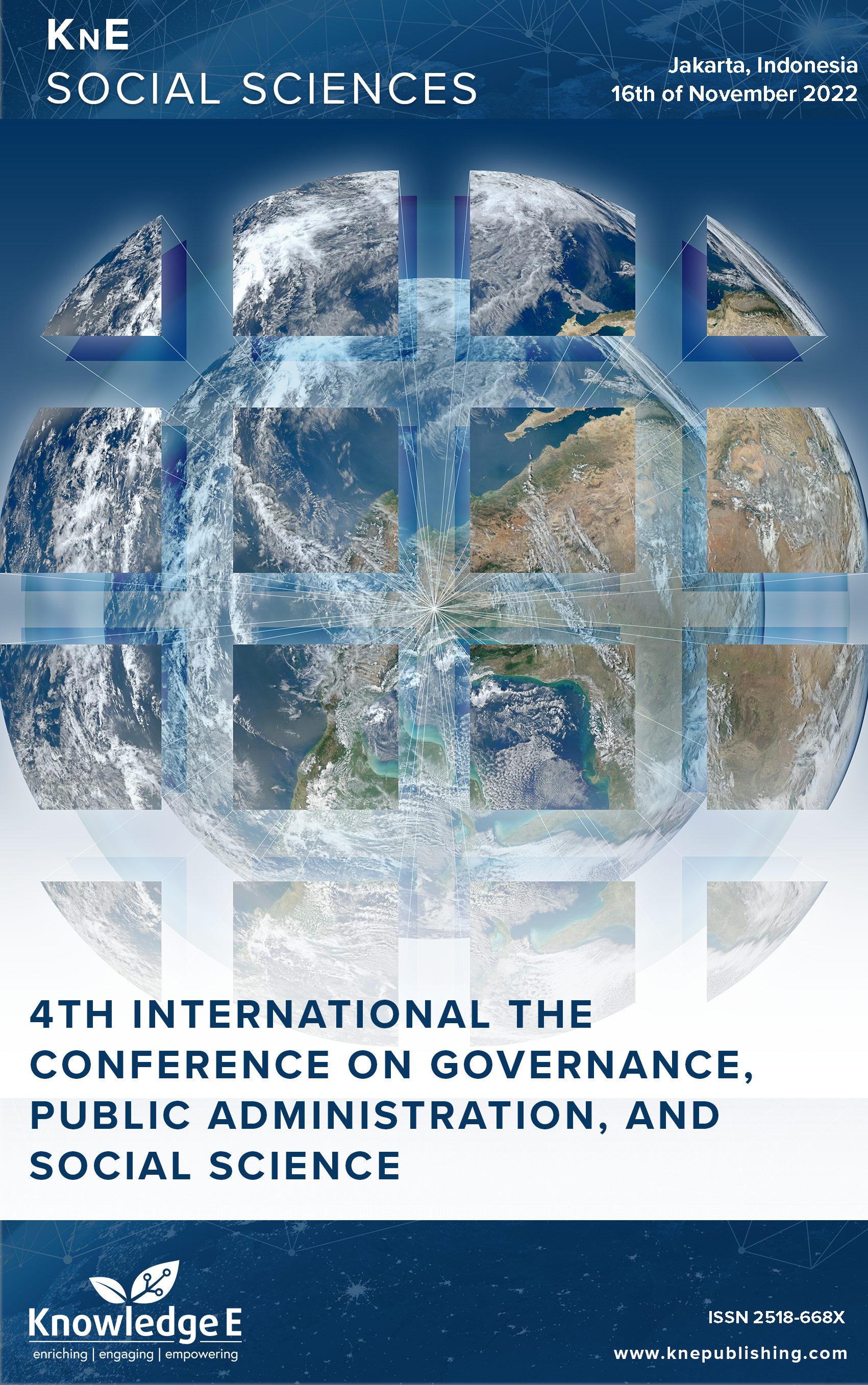The Role of the Government to Improve Financial Literacy in Efforts to Prevent the Use of Illegal Online Loans
DOI:
https://doi.org/10.18502/kss.v8i11.13552Abstract
Financial technology (Fintech) is a technological innovation developed in the financial sector so that financial transactions can be carried out practically, easily, and effectively. The progress of fintech in the field of money lending services has given rise to many applications/services based on peer-to-peer lending or online loans (pinjol). Based on the National Survey of Financial Literacy and Inclusion conducted by OJK in 2019, the financial literacy index reached 38.03%. However, 21 out of 34 provinces in Indonesia still have financial literacy levels below the average, with the lowest 3 provinces being: 1) East Nusa Tenggara (27.82%); 2) West Papua (28.87%); and 3) Papua (29.13%). Besides that there is a very high inequality when compared to the province which has the highest level of financial literacy, namely Jakarta (59.16%). NTT is also included as one of Indonesia’s 3T regions (the outermost, the frontmost, and the lagging). This study aims to examine efforts to increase financial literacy and its relation to online lending trends in East Nusa Tenggara. The study used qualitative methods, with data collection sourced from interviews, observations, and literature studies. Based on the research results, OJK has made efforts to improve financial literacy as well as to eradicate illegal online loans, which have been carried out in a planned, measurable, achievement-oriented, sustainable, and collaborative manner, one of which is demonstrated or manifested in the implementation of the Regional Investment Alert Task Force (SWID). However, the implementation of improving financial literacy needs to be continued and improved, especially in terms of the number of activities, socialization of activities that have been implemented, and improving coordination with other stakeholders.
Keywords: fintech, peer-to-peer lending, online loan, illegal, financial literacy
References
[2] Bestari NP. “Jangan Pinjam di 56 Pinjol Ini, Izinnya Sudah Dicabut OJK!,” CNBC Indonesia, 21 March 2022. [Online]. Available: https://www.cnbcindonesia.com/tech/20220318172127-37-324030/jangan-pinjamdi- 56-pinjol-ini-izinnya-sudah-dicabut-ojk. [Diakses 5 May 2022]
[3] Yushita AN. “Pentingnya literasi keuangan bagi pengelolaan keuangan pribadi.” Jurnal Nominal. 2017;VI(1):11-26.
[4] Lyons AC, Grable JE, Zeng T. “Impacts of financial literacy on the loan decisions of financially excluded households in the People’s Republic Of China.” Asian Development Bank Institute, China, 2019.
[5] OJK. OJK, Jakarta, Strategi Nasional Literasi Keuangan Indonesia 2021-2025. 2019.
[6] Marginingsih R. “Financial technology (Fintech) Dalam Inklusi Keuangan Nasional di Masa Pandemi Covid-19.” Jurnal Akuntansi dan Keuangan. 2021;8(1):56-64.
[7] Haikal F, Wijayangka C. “Hubungan Literasi Keuangan Dengan Pemanfaatan Pinjaman Online Studi Pada Mahasiswa Universitas Telkom Pengguna Layanan Cicil.co.id.” eProceedings of Management. 2021;8(2).
[8] Sevim N, Temizel F, Özlem. “The effects of financial literacy on the borrowing behavior of Turkish financial consumers.” International Journal of Consumer Studies. 2012;36.
[9] Novita N, Solihati KD. “Penyelesaian Kredit Macet Kur (Kredit Usaha Rakyat) Di Masa Pandemic Covid-19 Pada Bank Negara Indonesia (Bni) Wilayah Jakarta Kota Mulai Penerbitan Tahun 2021.” J Bus Adm Econ Entre. 2021;3(1):56-62.
[10] Artavanis N, Karra S. “Financial literacy and student dept.” Eur J Fin. 2020;4-5:382- 401.
[11] Sari N, Rizki M, Solihati KD. “Dampak Stimulus Pemerintah Untuk UMKM Pada Era Pandemi Covid-19.” J Bus Adm Econ Entre. 2021;3(1):1-8.
[12] Ahmad SD. “Peranan Otoritas Jasa Keuangan Dalam Penanggulangan Investasi Ilegal Di Indonesia.” PRIVAT LAW. 2018;6(1):1-12.
[13] Creswell JW. Research design: Qualitative, quantitative, and mixed method approaches. London: SAGE publication, 2014.
[14] F. Haikal dan C. Wijayangka, “HUBUNGAN LITERASI KEUANGAN DENGAN PEMANFAATAN PINJAMAN ONLINE STUDI PADA MAHASISWA UNIVERSITAS TELKOM PENGGUNA LAYANAN CICIL.CO.ID,” e-Proceeding of Management; Vol.8, No.2, p. 1226, 2021.
[15] Sevim ea. “The effect of financial literacy on the borrowing behaviour Turkish Financial Consumers.” Int J Consum Stud. 2012;36:573-579.
[16] Sabri M. “Pathways to financial success: Determinants of financial literacy and financial well-being among young adults.” Iowa State University, Iowa, 2011.
[17] Mendari AS, Kewal SS. “Tingkat Literasi Keuangan Di Kalangan Mahasiswa Stie Musi.” J Econ. 2013;9(2):130.
[18] I. R. I. A. &. N. B. G. Muzdalifa. “Peran Fintech Dalam Meningkatkan Keuangan Inklusif pada UMKM di Indonesia (Pendekatan
[19] Maulida R. “Fintech: Pengertian, Jenis, Hingga Regulasinya di Indonesia,” 2019. [Online]. Available: https://www.online-pajak.com/tentang-pajak-pribadi/fintech.

